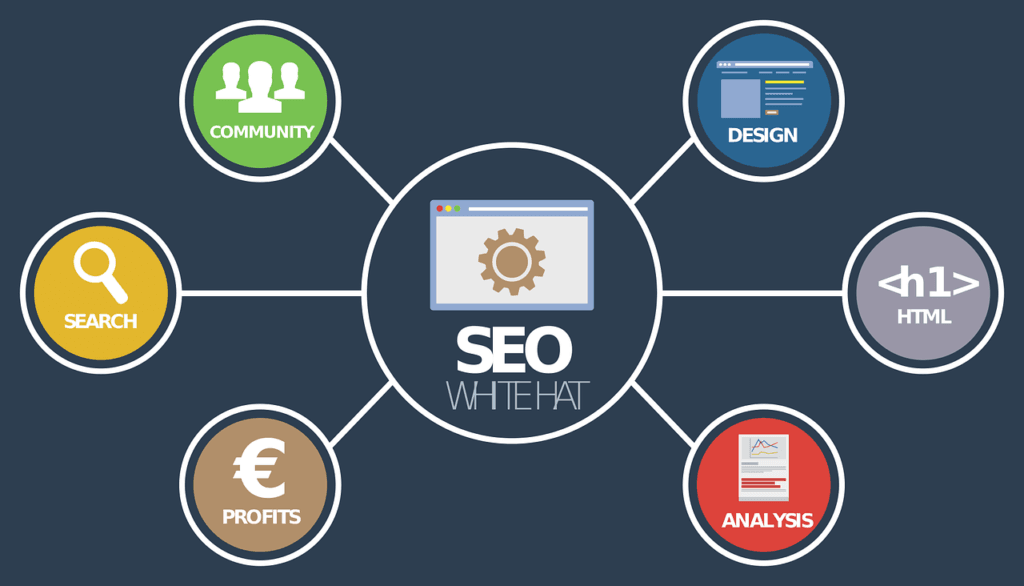This Article has been revised, edited and added to, by Poulomi Chakraborty.
- The Green Wave: Why Sustainability-Focused Startups Matter
- The Power of Community Engagement
- The Art of Hosting Green Community Events
- Hosting Green Community Events and Local SEO Synergy
- Measuring the Impact: Metrics That Matter
- Planning and Executing Successful Green Community Events
- Conclusion: Your Sustainable Journey Starts Locally
In an era where sustainability is no longer just a buzzword but a way of life, startups with a green heart have found themselves in a unique position. They are at the forefront of a movement that’s not just about profits but also about the planet and people. If you’re one of these sustainability-focused startups, you’re likely passionate about making a positive impact. But in a crowded digital landscape, how can you ensure that your green business stands out and thrives?
The answer lies in the synergy between community engagement and local SEO. Hosting green community events can be a powerful strategy to boost your local SEO efforts and connect with eco-conscious consumers. In this comprehensive guide, we’ll explore how hosting these events can elevate your online presence, improve your search engine rankings, and foster genuine connections with your local audience.
The Green Wave: Why Sustainability-Focused Startups Matter

Before we dive into the tactics of hosting green community events, let’s take a moment to understand why sustainability-focused startups are more relevant than ever.
In recent years, the world has witnessed a seismic shift in consumer behavior. People are becoming increasingly aware of the environmental challenges we face, from climate change to plastic pollution. This awareness has translated into a growing demand for sustainable products and services.
Sustainability-focused startups are uniquely positioned to cater to this demand. They operate with a commitment to reducing their ecological footprint, promoting ethical practices, and creating products or services that align with a greener future.
But here’s the challenge: with more startups entering the sustainable arena, competition is fierce. How do you ensure that your green business not only survives but thrives? The answer lies in engaging with your local community, and that’s where hosting green community events comes into play.
Understanding the Market Dynamics and Consumer Trends
The relevance of sustainability-focused startups extends beyond mere environmental concern; it taps into rapidly evolving market dynamics and consumer trends. As global awareness of environmental issues grows, so does consumer appetite for businesses that can provide innovative solutions to these problems.
These startups are not just participants in the market—they are shaping it by setting standards for sustainability and ethical business practices. To capitalize on this, startup founders should conduct thorough market analyses to identify emerging trends and preferences among eco-conscious consumers.
This strategic insight will enable them to tailor their offerings to meet specific demands, such as zero-waste products or carbon-neutral services, thereby positioning their companies at the forefront of the sustainability wave.
Leveraging Technology for Sustainable Innovation
Innovation in technology is a crucial driver for sustainability-focused startups. By leveraging the latest advancements in technology, such as artificial intelligence, big data, and blockchain, startups can enhance their operational efficiency, reduce waste, and increase transparency in their supply chains.
For example, AI can be used to optimize energy use in production processes, while blockchain can provide undeniable proof of ethical sourcing and sustainable practices. Founders should consider partnerships with tech companies or investment in in-house technology development to stay competitive and appealing to a tech-savvy, environmentally aware customer base.
Building Brand Loyalty Through Transparency and Engagement
Consumer trust is paramount, and it’s built on transparency and engagement. Startups should strive to create an open dialogue with their customers about the sustainability efforts they are undertaking and the challenges they face.
This can be achieved through regular updates via blogs, social media, and direct communications. Additionally, inviting customer feedback and involving them in sustainability efforts, perhaps through community clean-up events or participation in product development forums, helps deepen the relationship.
Such engagement not only boosts brand loyalty but also turns customers into brand advocates who share their positive experiences with others.
Strategic Collaborations and Partnerships
No business operates in isolation, especially in the realm of sustainability. Strategic collaborations with other businesses, government agencies, non-profits, and educational institutions can amplify the impact of a startup’s sustainability efforts.
These partnerships can range from co-developed products, shared logistic solutions to reduce carbon footprints, to collaborative public awareness campaigns. Such alliances not only expand the resources available to a startup but also enhance its credibility and reach by association with established names in sustainability.
Future-proofing Through Continuous Learning and Adaptation
The landscape of sustainability is constantly evolving, with new regulations, technologies, and consumer expectations shaping the market. Startups must remain agile, ready to learn and adapt quickly to continue leading in sustainability.
This involves staying informed about global sustainability developments, attending relevant workshops and conferences, and possibly even engaging in policy advocacy. Founders should foster a culture of continuous learning within their teams, encouraging innovation and experimentation, particularly in areas that could lead to greater sustainability.
The Power of Community Engagement

Community engagement is a two-way street. It’s about building a relationship where both you, as a sustainability-focused startup, and your local community benefit. Here’s why it matters:
- Local Support: When your community embraces your green business, you gain loyal customers who are not just interested in your products or services but in your mission. They become advocates for your brand.
- Word-of-Mouth Marketing: Happy local customers are more likely to spread the word about your business. Positive word-of-mouth marketing can significantly impact your reputation and visibility.
- Local SEO Boost: Engaging with your local community can have a direct impact on your local search engine optimization (SEO) efforts. Search engines like Google value businesses that are actively involved in their communities.
- Feedback and Improvement: Your local community can provide valuable feedback, helping you improve your products, services, and sustainability initiatives. It’s like having a team of dedicated advisors right in your backyard.
Cultivating a Community-Centric Brand Identity
For sustainability-focused startups, embedding a community-centric approach into the brand’s identity can significantly amplify impact and visibility. This approach goes beyond mere interaction; it involves shaping the startup’s mission and operations around the needs and values of the community it serves.
Founders should consider how their business can solve local environmental issues or contribute to local sustainability goals, which can enhance the brand’s relevance and emotional connect with the community.
By doing so, startups not only affirm their commitment to sustainability but also position themselves as integral members of the community, fostering a deeper sense of loyalty and support among local consumers.
Integrating Educational Initiatives into Community Events
A powerful method for engaging with the community is through educational initiatives that inform and inspire action on sustainability issues. By organizing workshops, seminars, and interactive sessions that focus on educating attendees about environmental issues and sustainable practices, startups can position themselves as thought leaders in the sustainability space.
Moreover, these educational initiatives can be tailored to various age groups and demographics, ensuring that the message of sustainability resonates across the community. Engaging local experts and educators to lead these sessions can further enhance their credibility and effectiveness.
Leveraging Local Media and Influencer Partnerships
Utilizing local media outlets and influencers can dramatically increase the reach and effectiveness of a startup’s community engagement efforts. By partnering with local newspapers, radio stations, and influencers who share a commitment to sustainability, startups can gain significant visibility within the community.
These media partnerships can be used to promote upcoming events, share success stories of past initiatives, or discuss the startup’s role in local sustainability efforts. Such exposure not only drives attendance at community events but also strengthens the startup’s local SEO through increased online mentions and backlinks.
Establishing Reciprocal Community Support Structures
Building reciprocal support structures such as loyalty programs or benefit events that give back to the community can reinforce the startup’s commitment to local development. For instance, a startup could offer discounts or special services to customers who participate in community clean-up days or recycling programs.
Alternatively, organizing events where proceeds are donated to local environmental projects can create a positive feedback loop of support, enhancing community goodwill and engagement. These initiatives demonstrate that the startup is not just taking from the community but is actively investing in its prosperity and well-being.
Facilitating Community-Led Sustainability Projects
Empowering the community to lead their sustainability projects can create lasting impact and foster strong connections between the startup and its local environment.
Startups can facilitate these projects by providing resources, expertise, and platforms for community members to launch initiatives such as community gardens, renewable energy projects, or local sustainability education programs.
Supporting these projects not only helps the community but also solidifies the startup’s role as a catalyst for local environmental and social improvement.
Through these strategies, sustainability-focused startups can deepen their community engagement, enhancing their local influence and strengthening their overall impact.
By embedding themselves within the community fabric, supporting educational initiatives, leveraging media partnerships, establishing reciprocal support structures, and facilitating community-led projects, startups can create a robust foundation for both their business and community’s sustainable future.
The Art of Hosting Green Community Events

Hosting community events is not just about getting people together; it’s about creating memorable experiences that resonate with your audience. Here’s a step-by-step guide on how to host successful green community events that can supercharge your local SEO:
Define Your Purpose and Goals
Every event should have a clear purpose and measurable goals. What do you aim to achieve with your green community event? It could be raising awareness about a specific environmental issue, promoting a sustainable product, or simply fostering a sense of community among eco-conscious individuals.
Having well-defined goals will not only guide your event planning but also help you measure its success later.
Choose the Right Venue
The venue you select for your event should align with your sustainability values. Consider hosting your event in a green-certified venue or an outdoor space that minimizes environmental impact. If that’s not possible, make sure to implement eco-friendly practices at the chosen venue.
Plan Engaging Activities
The success of your event hinges on how engaged your attendees are. Plan activities that resonate with your audience and align with your sustainability mission. These can include workshops, talks by environmental experts, hands-on demonstrations, or interactive games.
Collaborate with Local Partners
Collaboration is key to community engagement. Partner with local businesses, nonprofits, or eco-conscious influencers who share your values. Co-hosting an event with reputable local partners can expand your reach and credibility within the community.
Promote Your Event Online
Your event’s success depends on attendance, and that requires effective online promotion. Leverage your website, social media platforms, and email marketing to spread the word. Create visually appealing event pages and use eco-friendly digital marketing practices.
Embrace Sustainable Event Practices
Practice what you preach by implementing sustainable event practices. Minimize waste by using eco-friendly materials, encourage carpooling or public transportation, and provide recycling stations. Your commitment to sustainability should be evident at every touchpoint of the event.
Capture the Moment
Document your green community event with high-quality photos and videos. Share these visuals on your website and social media platforms. Visual content not only helps you relive the event but also serves as valuable marketing material for future events.
Engage Online and Offline
During the event, encourage attendees to engage on social media using a dedicated event hashtag. This creates buzz and extends your event’s reach to a broader online audience. Additionally, foster offline engagement by encouraging meaningful conversations and networking.
Gather Feedback
After the event, don’t forget to gather feedback from attendees. Use surveys or online forms to understand what worked well and what could be improved. This feedback is invaluable for planning future events.
Measure the Impact
Finally, measure the impact of your green community event on your local SEO efforts. Analyze website traffic, social media engagement, and online reviews before and after the event. Did your local SEO metrics improve? Did your event garner positive reviews and mentions?
Hosting Green Community Events and Local SEO Synergy
Now, you might be wondering how hosting green community events can directly impact your local SEO efforts. Here’s where the synergy comes into play:
- Local Citations: When you host events in your local community, you create opportunities for local citations. Event listings, mentions in local news articles, and social media posts about your event can serve as valuable citations, boosting your local SEO.
- Local Keywords: By incorporating local keywords related to your event and location in your event promotion materials, you increase the chances of attracting local organic search traffic. People searching for eco-friendly events in your area are more likely to discover your business.
- Local Backlinks: Collaborating with local partners for your events often results in backlinks from their websites and social media. These local backlinks enhance your website’s authority in the eyes of search engines.
- Positive Reviews: Successful events can lead to positive online reviews, especially if attendees had a great experience. Positive reviews are a powerful signal to search engines that your business is trusted and valuable to the community.
- Local Engagement: Hosting events demonstrates your active engagement with the local community. Search engines like Google consider community involvement as a positive factor for local search rankings.
- Content Creation: Events generate a wealth of content opportunities. You can create blog posts, videos, and social media updates about your events, all of which contribute to a fresh stream of content that search engines appreciate.
Enhancing Local SEO Through Strategic Content Creation
One of the most effective ways to leverage green community events for boosting local SEO is through strategic content creation. Startups should plan to generate a variety of content types centered around their events, such as blog posts, press releases, and video content that highlight the event’s purpose, activities, and community impact.
This content should be optimized with local keywords that are relevant to both the event and the startup’s business focus. By doing so, startups enhance their visibility on search engine results pages (SERPs) when local users search for related topics.
Additionally, ensuring that this content is engaging and shareable will increase its reach and potential to generate inbound links, which are highly valuable for SEO.
Utilizing Event Hashtags for Wider Reach and Engagement
Creating a unique, memorable hashtag for each green community event can significantly amplify its visibility online. This hashtag should be used consistently across all digital platforms, from social media posts to event webpages, and even in email marketing.
Encouraging participants to use the hashtag when posting about the event can help spread the word organically, increasing content visibility and engagement. This not only aids in building a community around the startup’s sustainability efforts but also signals to search engines the relevancy and popularity of the startup’s content, further boosting SEO.
Building Local Links Through Community Participation
Link building, a critical factor in SEO success, can be effectively achieved by engaging with the local community through events. Startups should focus on building relationships with local organizations, media, and other businesses that can offer relevant backlinks to the startup’s website.
For instance, partnering with a local environmental organization or a community center to host an event can lead to high-quality local backlinks if these partners feature the event on their own digital platforms.
Moreover, getting featured in local online magazines or blogs not only builds credibility but also enhances the startup’s backlink profile, improving its SEO.
Leveraging Local Landing Pages
For startups hosting multiple community events across different locations, creating dedicated local landing pages for each event can be highly beneficial. These pages should provide detailed information about the event, including date, location, agenda, and any special guests.
Additionally, they should include local SEO strategies such as embedding maps, local contact information, and testimonials from local participants. These localized pages are more likely to rank well for searches in their respective areas, helping to attract more local traffic and increasing the startup’s online visibility in targeted communities.
Monitoring SEO Impact to Refine Strategies
To fully capitalize on the SEO benefits of hosting green community events, startups must monitor and analyze the impact of their efforts. This includes tracking changes in search rankings, website traffic from local searches, and engagement metrics on social media and other online platforms.
Using tools like Google Analytics and Google Search Console can help startups understand which aspects of their event and content strategy are working and which areas need adjustment.
By continually refining their strategies based on data-driven insights, startups can enhance the effectiveness of their SEO efforts and ensure that they are achieving the desired impact on their visibility and community engagement.
Through these strategies, sustainability-focused startups can not only enhance their local SEO but also build a stronger, more engaged community presence. By strategically creating content, utilizing event-specific hashtags, building local links, creating dedicated landing pages, and continuously monitoring their SEO impact, startups can effectively leverage green community events to achieve significant improvements in both their online presence and their local community impact.
Measuring the Impact: Metrics That Matter

As with any SEO strategy, it’s essential to measure the impact of hosting green community events on your local SEO efforts. Here are some key metrics to track:
- Website Traffic: Monitor the increase in organic search traffic to your website after hosting events. Tools like Google Analytics can provide valuable insights.
- Local Citations: Keep an eye on new citations generated as a result of event listings, mentions, and articles related to your events.
- Backlinks: Track the acquisition of local backlinks from event partners and local news sources.
- Online Reviews: Measure the number of positive online reviews and ratings your business receives after each event.
- Local Keyword Rankings: Use SEO tools to monitor the rankings of local keywords related to your events and business. Are you appearing higher in local search results?
- Social Media Engagement: Analyze the increase in social media engagement, such as likes, shares, and event RSVPs.
- Conversion Rate: If your goal is to convert event attendees into customers, track the conversion rate of event attendees on your website.
- Local Engagement: Observe an increase in local engagement, such as comments, shares, and mentions on local social media platforms and websites.
Developing a Comprehensive Analytics Framework
To gauge the effectiveness of green community events in boosting local SEO and engaging the community, startups need to develop a comprehensive analytics framework. This involves setting up tracking systems before the event begins to ensure all data from various sources can be captured and analyzed.
Startups should integrate tools such as Google Analytics, social media analytics, and CRM software to collect data across multiple channels. This framework should be tailored to measure specific goals of the event, such as increases in local traffic, engagement rates on social media, and the quality of interactions during the event.
Advanced Tracking of User Engagement and Behavior
Understanding how attendees interact with the event online can offer valuable insights into what captures their interest and prompts further action. Using advanced tracking tools like heat maps and session recordings can help startups see how users navigate their event pages or interact with event-related content.
This data can highlight areas of high engagement and parts of the page that might be causing user drop-offs, allowing for optimization of future content and page layouts to better meet user expectations and improve SEO results.
Segmenting and Analyzing Attendee Data
Segmentation of attendee data plays a critical role in understanding the diverse impact of community events. By categorizing data according to demographic factors such as age, location, and how they found out about the event, startups can gain deeper insights into which segments are most engaged and which marketing channels are most effective.
This allows for more targeted and effective marketing strategies in the future, enhancing both event turnout and online engagement, which are crucial for SEO improvements.
Utilizing Post-Event Surveys for Qualitative Feedback
While quantitative metrics provide a broad overview of an event’s success, qualitative feedback is essential for understanding the attendee experience and the event’s impact on brand perception.
Post-event surveys that explore attendees’ satisfaction, their takeaways from the event, and their perception of the startup’s commitment to sustainability can provide critical insights that are not captured through numerical data alone.
This feedback is invaluable for refining event strategies and content, improving community relations, and enhancing the startup’s reputation, all of which indirectly benefit SEO through increased brand loyalty and customer advocacy.
Long-Term Tracking of SEO Performance
Finally, measuring the long-term impact of green community events on local SEO performance is crucial. Startups should track changes in their search engine rankings, local citations, and backlink profiles for an extended period post-event to fully understand the lasting effects of their efforts.
This long-term data not only helps in proving the ROI of hosting community events but also informs the strategic planning of future events to maximize SEO benefits over time.
Regularly updated dashboards that report on these metrics can help maintain a focus on continuous improvement and ensure that the startup remains aligned with its long-term SEO objectives.
By implementing these detailed measurement strategies, startups can not only evaluate the immediate impact of their green community events but also gain insights that drive continuous improvement in both community engagement and local SEO enhancement.
These efforts help sustain the growth and visibility of sustainability-focused startups in competitive markets.

Related: Check out our free SEO suite

Planning and Executing Successful Green Community Events
Now that you understand the significance of hosting green community events and how they can boost your local SEO efforts, let’s dive into the nitty-gritty of planning and executing these events effectively. Here are the practical steps to get started:
Brainstorm Event Ideas
Begin by brainstorming event ideas that align with your sustainability-focused startup’s mission and values. Consider the following questions:
- What environmental or social issues are you passionate about?
- How can you address these issues through events?
- What type of event will resonate with your local audience?
- Are there any unique experiences you can offer?
For example, if your startup focuses on eco-friendly home products, you might consider hosting a “Green Home Makeover Workshop” where attendees learn how to make their homes more sustainable.
Set Clear Goals
Define specific and measurable goals for your green community events. What do you want to achieve? Some common event goals include:
- Increase brand awareness within the local community.
- Generate positive online reviews and ratings.
- Drive website traffic and online engagement.
- Promote a specific product or service.
- Build partnerships with local businesses or nonprofits.
Having clear goals will guide your event planning and help you evaluate its success.
Choose Event Dates and Locations
Select suitable dates and locations for your events. Consider factors such as:
- Local events and holidays that might affect attendance.
- Weather conditions if your event is outdoors.
- Accessibility and convenience for attendees.
- Availability of eco-friendly venues or spaces.
Ensure that the dates and locations are well-publicized to attract attendees.
Plan Engaging Activities
Craft a detailed event agenda that includes engaging activities. Consider incorporating elements like:
- Guest speakers or experts related to your sustainability niche.
- Hands-on workshops or interactive demonstrations.
- Live music or entertainment.
- Networking opportunities.
- Eco-friendly giveaways or prizes.
The key is to create an experience that resonates with your audience and leaves a lasting impression.
Secure Partnerships
Collaborate with local partners who share your sustainability values. Reach out to local businesses, nonprofits, eco-conscious influencers, or even local government organizations. Partnerships can help with event planning, promotion, and funding.
Partnerships also bring diverse perspectives and resources to your events, making them more impactful.
Promote Your Events

Effective promotion is crucial to attract attendees to your green community events. Here are some promotional strategies to consider:
- Create visually appealing event posters or flyers.
- Utilize social media platforms to create event pages and posts.
- Email your existing customer base and mailing list.
- Engage with local media outlets for event coverage.
- Collaborate with partners for cross-promotion.
- Leverage event listing websites and local directories.
Consistent and compelling event promotion will drive attendance and visibility.
Embrace Sustainable Event Practices
Walk the talk by ensuring that your events reflect your commitment to sustainability. Implement the following eco-friendly event practices:
- Use recyclable or biodegradable event materials.
- Minimize waste through proper recycling and composting.
- Encourage carpooling, biking, or the use of public transportation.
- Provide reusable water stations instead of single-use bottles.
- Source local and sustainable catering options.
These practices not only align with your mission but also inspire eco-conscious attendees.
Capture Moments
Hire a professional photographer or videographer to document your green community events. High-quality photos and videos can be repurposed for marketing materials, social media, and your website.
Capturing the moments allows you to share the experience with a broader audience and build anticipation for future events.
Engage Attendees Online and Offline
During the events, encourage attendees to engage both online and offline. Create event-specific hashtags and encourage attendees to share their experiences on social media. Offline engagement can include facilitated discussions, Q&A sessions, or networking breaks.
Engagement fosters a sense of community and connection.
Gather Feedback and Measure Success
After each event, gather feedback from attendees through surveys or feedback forms. This information is invaluable for improving future events.
Additionally, measure the success of your green community events using the metrics discussed earlier, such as website traffic, local citations, backlinks, online reviews, and social media engagement. Analyze how each event contributed to your local SEO efforts and overall business goals.
Iterate and Improve
Based on feedback and event metrics, continually refine your event strategies. Incorporate lessons learned from previous events to make each subsequent one even better. Over time, you’ll develop a formula for hosting successful green community events that resonate with your local audience.
Conclusion: Your Sustainable Journey Starts Locally
Hosting green community events isn’t just about creating a one-time buzz; it’s about building lasting connections with your local audience and making a meaningful impact. By fostering these connections, you’re not only enhancing your local SEO efforts but also becoming an integral part of your community’s sustainable journey.
In the digital age, where sustainability-focused startups are numerous, community engagement can be your unique selling point. It’s a reminder that sustainability isn’t just about products or services; it’s about people and the planet coming together for a greener, brighter future.
Read Next
- Speed Optimization for Better User Experience in Travel Websites
- Mobile Responsiveness: How to Use it for Travel SEO
- Facebook Local: An Opportunity for Local SEO
- How Twitter Affects SEO for Travel Businesses
- Instagram SEO Strategies for Travel Influencers






















Comments are closed.